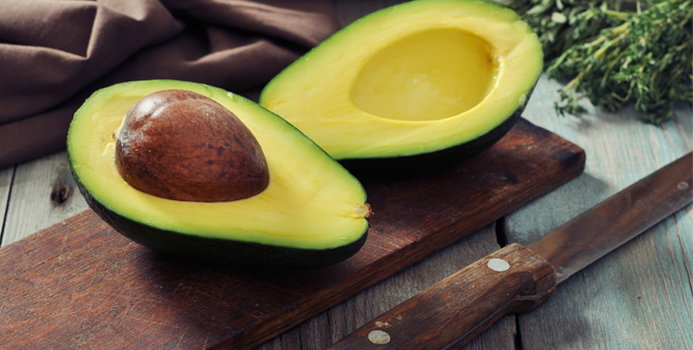Avocados are one of the most nutritious fruits you can select for a healthy diet. The fruit is also one of the most versatile. You can eat it fresh or use it as a salad ingredient or sandwich filling. You can also make a dip, smoothie, juice or puree from avocado. The fruit is quite filling and is regarded as a complete food.
It is a good source of vitamins A, B-complex, C, E and K, and the mineral content includes phosphorous, potassium, magnesium, copper, zinc, iron and manganese. The fruit is also a good source of protein, dietary fiber and phytonutrients. Additionally, it is a unique fruit due to the high amount of fat it contains.
Fat Content of Avocados
A serving of 170 grams contains 285 calories. Fats account for about 25 grams. Most of these are monounsaturated fats, which are considered as healthy fats. They account for about 63 percent of the total fat content. The fruit also contains a low amount of polyunsaturated and saturated fats. These represent 20 percent and 17 percent of total fat content respectively. Although the fruit is often shunned by weight watchers because of the high fat content, avocado fats are actually good for you.
Role of Avocado Fats for Good Health
Avocado is an excellent source of monounsaturated fats such as oleic and linoleic acid. These fats promote the health of your heart. They play a vital role in regulation of cholesterol. The fats help to lower low density lipoprotein (LDL) cholesterol and increase high density lipoprotein (HDL) cholesterol. High levels of LDL cholesterol lead to formation of plaque in blood vessels. With time, this causes arteries to become blocked and inhibits the smooth flow of blood. This increases the risk of stroke and cardiovascular disease. HDL cholesterol is a healthier type as it helps to cleanse your arteries of LDL cholesterol. This lowers LDL levels in the arteries and helps to protect them. This promotes your cardiovascular health.
Monounsaturated fats also help to speed up your basal metabolic rate (BMR). This is the rate at which calories are burned when you're in a state of rest. The calories are used to sustain basic functions such as cell repair, maintain body internal temperature and pump blood. Regular consumption of avocados can help you boost your BMR which facilitates weight loss endeavors.
Avocados contain the highest amount of beta-sitosterol amongst fruits. This is a plant-based fat that plays a vital role in the reduction of LDL cholesterol. It blocks absorption of LDL cholesterol from the intestines. This helps to improve the ratio of LDL and HDL cholesterol, which promotes cardiovascular health.
Omega-3 fatty acids, which are also present in avocados, are polyunsaturated fats that help to stabilize blood pressure. They also help to sustain a normal heartbeat. This promotes cardiovascular health and reduces the risk of stroke and coronary disease.
Storage
A ripe avocado will yield to pressure when you press it firmly but gently. When the fruit is ripe, you can refrigerate for up to 1 week in un-sliced form. Once you cut the fruit, do not refrigerate for more than 1 day. When the cut fruit is exposed to air, it turns color because of the iron content. Sprinkle some lemon juice to prevent color transformation.



